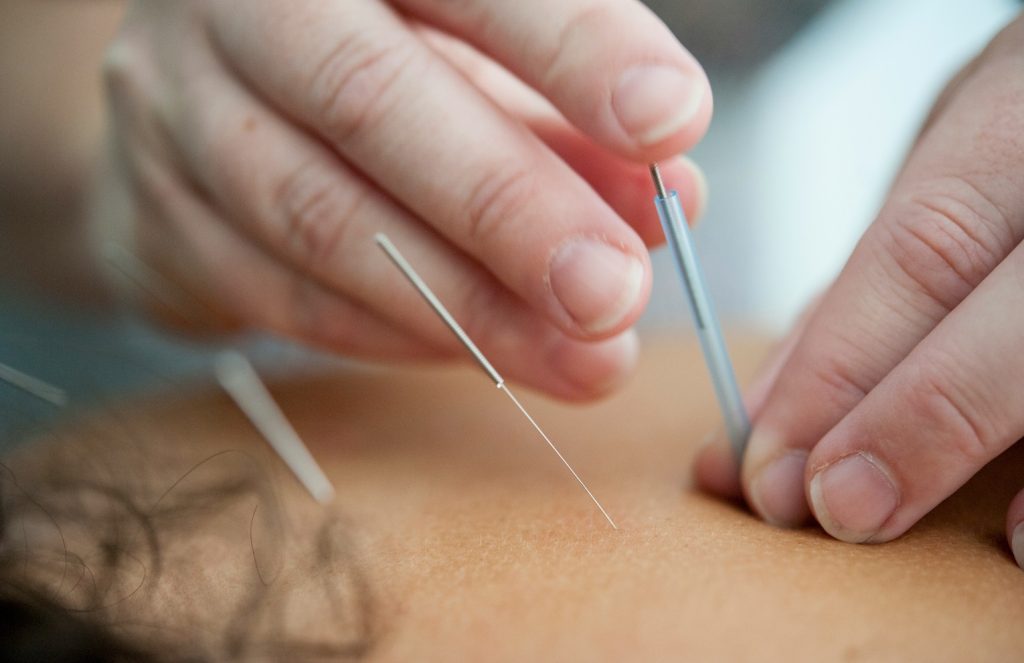Alternative medicine has gained popularity as a holistic health option, marking a departure from conventional medical approaches. The growing interest has led to an increased demand for careers in alternative medicine, indicating a shift towards more diverse and holistic healthcare practices in the job market.
Alternative medicine practices such as acupuncture, herbalism, and energy healing, have gained recognition for their potential contributions to overall well-being. This exploration highlights 17 alternative medicine careers that meet the rising demand for holistic healthcare options.
What Is Alternative Medicine?
Alternative medicine encompasses diverse therapeutic approaches and practices that differ from conventional Western medicine. Rooted in various cultural traditions and ancient healing systems, alternative medicine often emphasizes a holistic view of health, considering the interconnectedness of the mind, body, and spirit. Unlike mainstream medicine, which typically relies on pharmaceuticals and surgical interventions, alternative medicine may involve natural remedies, dietary changes, physical therapies, and mind-body practices.
Recently, alternative medicine has gained notable popularity and acceptance. Many individuals opt for alternatives to conventional treatments, attracted by personalized and holistic approaches that address underlying causes rather than merely alleviating symptoms. This growing interest reflects a broader cultural shift towards recognizing and integrating diverse healing modalities into overall healthcare practices, acknowledging the potential benefits of a more inclusive and patient-centered approach to well-being.
Alternative Medicine Careers
Alternative medicine offers diverse career paths, each falling into distinct categories. In the following paragraphs, we explore these alternative medicine careers, uncovering their unique principles and contributions to holistic healthcare.
Bodywork therapies
Bodywork therapies, including massage therapy, acupuncture, and chiropractic, focus on physical well-being by addressing the body’s structure and function. These alternative medicine careers involve hands-on approaches that aim to enhance health and alleviate various physical conditions.
Massage therapy
Massage therapy is a hands-on practice, manipulating muscles and soft tissues to promote relaxation, improve circulation, and alleviate stress. To become a licensed massage therapist, individuals complete a formal education program, ranging from 500 to 1,000 hours, depending on jurisdiction.
As a massage therapist, one’s career focuses on helping clients manage pain, reduce stress, and enhance overall well-being. Recognized for its importance in holistic health, medical massage therapy offers practitioners flexibility in choosing specialties and work settings.
Acupuncture

Acupuncture is an ancient Chinese medicine practice that involves inserting thin needles into specific points on the body to stimulate energy flow and restore balance. To become an acupuncturist, you need a high school diploma or a bachelor’s degree, depending on the program. Acupuncturists often pursue a Master’s degree in acupuncture or a related field.
This alternative medicine career allows practitioners to contribute to pain management, stress reduction, and overall health improvement. Acupuncturists can also enjoy the potential for self-employment, working in private practice, or collaborating with other healthcare professionals.
Chiropractic
Chiropractic care promotes overall health by focusing on the musculoskeletal system, particularly the spine. Chiropractors diagnose and treat conditions through manual adjustments and non-invasive techniques. Becoming a chiropractor requires completing a Doctor of Chiropractic (D.C.) program, involving extensive coursework and clinical training.
Chiropractic professionals provide satisfaction in helping patients manage pain, improve mobility, and enhance overall well-being. Practitioners can also enjoy the potential for self-employment, flexible work hours, and specialization in areas like sports injuries or pediatrics.
Mind-body therapies
Mind-body therapies, which include meditation, aromatherapy, reflexology, and Reiki, focus on integrating mental and physical well-being. These alternative medicine practices seek to harmonize the mind and body, fostering holistic health and balance.
Meditation
Meditation is a practice that cultivates mindfulness and focused awareness, aiming to achieve mental clarity and relaxation. While there may not be strict educational requirements, individuals often engage in workshops, guided sessions, or courses to become skilled meditation practitioners.
This career offers the satisfaction of helping individuals reduce stress and anxiety, improve emotional well-being, and enhance concentration and cognitive function.
Aromatherapy

Aromatherapy utilizes essential oils to promote physical and psychological well-being. Practitioners may pursue formal education or certification in aromatherapy, often available through workshops or specialized courses. Aromatherapists enjoy the fulfilling aspects of alleviating stress and enhancing relaxation, improving sleep quality, and supporting emotional balance and mood.
Reflexology
Reflexology involves applying pressure to specific points on the feet, hands, or ears to stimulate healing responses in corresponding body parts. You must complete specialized training programs or workshops to become a certified reflexologist. This career allows practitioners to promote relaxation and stress reduction, enhance circulation and energy flow, and alleviate pain and tension in their clients.
Reiki
Reiki is an energy healing practice that involves the transfer of universal life force energy to promote physical, emotional, and spiritual well-being. Practitioners can attain various levels of Reiki certification through training and attunement. As a practitioner of such alternative medicine, one finds fulfillment in facilitating relaxation and stress relief, supporting emotional healing, and enhancing their clients’ overall energy and vitality.
Traditional healing systems
Traditional Chinese Medicine (TCM), Ayurveda, Naturopathy, and Homeopathy represent traditional healing systems that have evolved over centuries. Based on cultural and historical traditions, these approaches aim to restore balance and promote well-being through holistic methods.
Traditional Chinese medicine (TCM)
TCM is a comprehensive system that includes acupuncture, herbal medicine, massage (Tui Na), and dietary therapy. Practitioners may become licensed acupuncturists or herbalists through formal education, such as a Master’s in TCM.
This career provides the opportunity to address various health concerns, promote natural healing, and contribute to a holistic understanding of the triangle of body, mind, and spirit.
Ayurveda

Ayurveda is an ancient healing system from India that focuses on balancing the body’s energies (doshas) through personalized approaches, including herbal remedies, dietary adjustments, and lifestyle practices.
Ayurvedic practitioners typically pursue formal education in Ayurvedic medicine, which may include a Bachelor’s or Master’s degree. This career offers the satisfaction of promoting individualized health, supporting preventive care, and contributing to clients’ overall well-being.
Naturopathy
Naturopathy emphasizes natural healing modalities, including herbal medicine, nutrition, hydrotherapy, and lifestyle counseling. Naturopathic doctors (NDs) complete a rigorous education, typically a Doctor of Naturopathy or Naturopathic Medicine degree.
Following the Naturopathy career one has the opportunity to address the root causes of health issues, guide patients toward sustainable lifestyle changes, and contribute to a holistic and integrative approach to healthcare.
Homeopathy
Homeopathy is based on the principle of “like cures like,” using highly diluted substances to stimulate the body’s natural healing processes. Homeopathic practitioners may pursue formal education in homeopathy, often leading to certification or licensure.
Homeopathy practitioners offer individualized treatment plans, address a wide range of health conditions, and contribute to a system of medicine that prioritizes minimal invasiveness and patient-centered care.
Nutritional and herbal approaches
Nutritional and Herbal Approaches encompass practices like Holistic Nutrition and Herbology. These alternative medicine approaches promote well-being through dietary and herbal interventions, recognizing the impact of nutrition and plant-based remedies on overall health.
Holistic Nutrition
Holistic nutrition involves considering the whole person—mind, body, and spirit—when designing personalized dietary plans. Practitioners may hold certifications or degrees in holistic nutrition, often requiring specialized coursework. Holistic nutritionists guide their patients to gain their optimal health through personalized dietary changes, addressing nutritional imbalances, and contributing to a holistic understanding of the connection between food and well-being.
Herbology

Herbology, also known as herbal medicine or phytotherapy, involves using plants and plant extracts for therapeutic purposes. Herbalists may pursue formal education, such as a degree or certification in herbology.
This career offers the opportunity to work with the healing properties of various plants, create customized herbal remedies, and contribute to natural and holistic approaches to healthcare. Practitioners in herbology find fulfillment in helping individuals manage health conditions, promoting preventive care, and supporting the body’s innate healing abilities.
Energy healing and therapies
Energy Healing and Therapies focus on understanding and manipulating the body’s energy systems to promote physical, mental, and emotional well-being.
Energy healing
Energy Healing involves channeling and manipulating energy to promote balance and harmony within the body. Practitioners may follow various modalities such as Reiki, Qigong, or Healing Touch. While specific educational requirements may vary, individuals often undergo training or certification programs. As an energy healer, one has the satisfaction of facilitating relaxation and stress relief, supporting emotional healing, and contributing to overall energy and vitality in clients.
Kinesiology
Kinesiology, or muscle testing, is a holistic approach that assesses the body’s energy flow and balance by monitoring muscle responses. Practitioners typically complete training or certification in kinesiology techniques.
Such alternative medicine career provides the opportunity to identify energy imbalances, address stressors affecting the body, and contribute to an integrative understanding of the mind-body connection. Kinesiologists find fulfillment in helping clients enhance physical performance, manage stress, and achieve optimal energy flow for improved well-being.
Comprehensive health approaches
Comprehensive Health Approaches encompass practices that consider various aspects of an individual’s well-being, such as wellness coaching.
Wellness coaching
Wellness Coaching involves partnering with clients to identify and work towards their health and wellness objectives. Coaches typically hold certifications in wellness coaching, which may include completing training programs or courses.
Such a career provides the opportunity to inspire positive lifestyle changes, support clients in achieving sustainable health goals, and contribute to overall well-being. Wellness coaches find fulfillment in helping individuals overcome obstacles, enhance self-awareness, and create a balanced and healthy lifestyle tailored to their unique needs.
Jobs in Alternative Medicine That Pay Well
According to the Bureau of Labor Statistics (BLS), alternative medicine careers vary in compensation. Acupuncture leads with a median annual wage of $89,060, showcasing the demand for this ancient Chinese practice. Chiropractic care closely follows at $75,380, emphasizing the financial viability of musculoskeletal health professions. Aromatherapy offers another avenue with a median annual wage of $51,339 for those seeking a blend of holistic wellness and competitive earnings. Massage therapy, rounding out the list at $49,860, demonstrates the diverse opportunities within this expanding field.
The Bottom Line
In 2024, alternative medicine careers are expanding to meet the growing interest in holistic health. From acupuncture to massage therapy, these professions contribute to a broader understanding of well-being, offering individuals fulfilling career paths.
Embark on a transformative journey into the world of alternative medicine with AIAM. Explore our comprehensive programs, designed to equip you with the knowledge and skills needed to thrive in this evolving field. Join AIAM today and be part of a community dedicated to shaping the future of alternative medicine!
Frequently Asked Questions
How do I start a career in holistic medicine?
To start a career in holistic medicine, begin by researching accredited programs in holistic health or alternative medicine, obtaining relevant certifications, and gaining hands-on experience through internships or apprenticeships.
How big is the market for alternative medicine?
The market for alternative medicine is substantial and continually growing, reflecting a surge in interest in holistic health. With increasing awareness and demand for alternative therapies, the market presents significant opportunities for those entering the field.